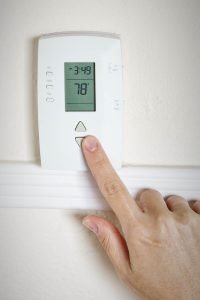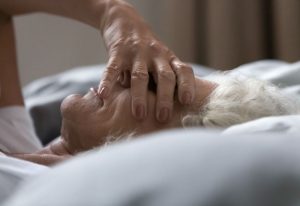Old wives’ tales claim that people sleep better in colder temperatures, with an open window letting in the cool night air. When it comes to the correlation between good sleep and the temperature of the environment, it appears that numerous grandmothers were correct. Research has shown that there is a link between colder room temperatures and a higher quality of sleep.
Temperature and the Circadian Rhythm
The circadian rhythm, our body’s internal 24-hour clock, dictates more than just when it’s time to go to sleep and when it’s time to awaken. This internal rhythm also affects the body’s core temperature. In a healthy person, body temperature begins to rise after waking in the morning and is highest near the end of the day, before dropping sharply just before bedtime. As we fall asleep, veins and other blood vessels near the surface of the skin dilate and release heat, lowering peripheral skin temperature. Body temperature then stays at its lowest throughout the night while we sleep.
There is a clear connection between body temperature and sleepiness, but the physiological basis of this connection was previously unknown. In fact, this correlation has been the subject of several studies in the field of circadian biology. Recent research suggests that the best explanation for why you feel colder when you are tired may simply be that you have waited too long to fall asleep. Because the body’s temperature reaches its high near the end of the day and drops slowly from that point on, it is only natural that you will begin to feel cooler as bedtime approaches.
Thermoregulation and Sleep

Thermoregulation is a complex biological process that is controlled by the hypothalamus of the brain. The preoptic nucleus of the hypothalamus senses and responds to the temperature of the blood. When blood temperature sinks too low, the hypothalamus tells the body to shiver and generate heat. When blood temperature becomes too high, humans sweat and vasodilate to release heat.
These reactions are innate and occur without our conscious control. However, there also is a behavioral component to thermoregulation: When people feel too cold or too hot, they cover themselves or remove a layer.
How Does External Temperature Affect Sleep?
Although human thermoregulatory systems can maintain an ideal body temperature in many situations, as mentioned above, these systems close down partially during REM sleep. During this period, the shivering and sweating reflexes controlled by the hypothalamus are not as responsive or as effective.
Without fully functioning innate responses, thermoregulation requires a behavioral response. People may toss and turn, kick off a blanket or otherwise attempt to warm or cool themselves. The resulting activity can disrupt sleep or even wake a person up.
Because the ideal body temperature while asleep is very low— typically between 60 and 67 degrees Fahrenheit — most people will not require as much thermoregulation and thus not toss or turn as much when they are sleeping in a cool room. This may lead to deeper sleep, as REM sleep will not be interrupted by restless movements.
Can Body Temperature Affect Insomnia?
Keeping in mind the link that chronobiology research has shown between low body temperature and better quality sleep, it is not surprising to find that abnormalities in the body’s natural temperature cycle have been linked to insomnia. Sleep onset insomnia, or difficulty falling asleep, has been linked to a delay in vasodilation and subsequent lowering of peripheral skin temperature. Conversely, people who have sleep maintenance insomnia, or difficulty staying asleep, typically have an elevated temperature at night. Many researchers believe that insomnia and elevated body temperature may both be caused by hyperarousal in the hypothalamus.

There is still much that remains unknown about the human circadian rhythm and its effect on physiological processes. This area is being actively studied, as the resulting knowledge will have meaningful effects on health and quality of life. However, based on research findings on why we sleep better in colder temperatures, it is safe to say that sleeping in a cool room will often lead to a better night’s sleep.







